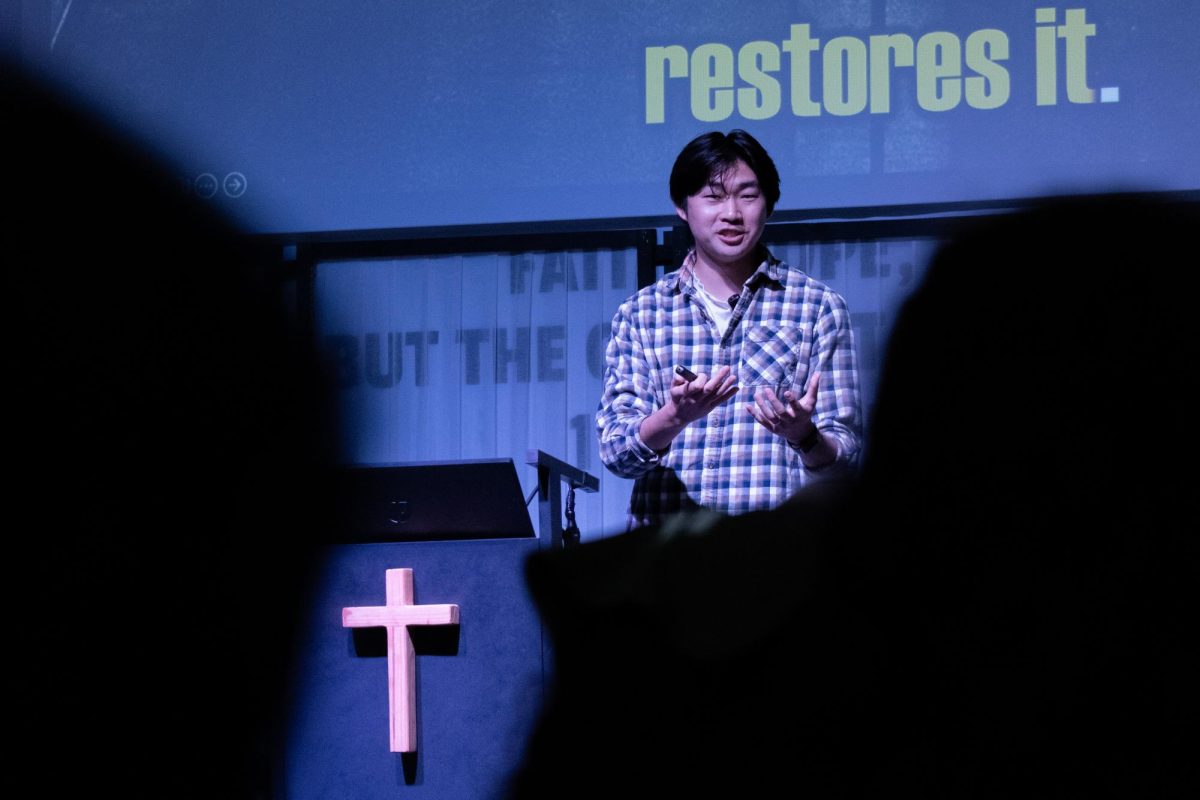With the holiday season and finals week just around the corner, dealing with depression, was the subject of a lecture by Dr. Alison Freeman, continuing The Blues Project weeklong look at depression and prevention.
“It is a horrible stigma, one out of five students will be depressed,” said Freeman. “Suicide is the second leading cause of death in 18 to 30-year-olds, and it’s a really serious problem. The Blues Project tries to get rid of that stigma and provide options.”
Focusing on the three major types of depression, major depression, dysthymic disorder and bipolar disorder, students in attendance were informed of ways to not only help identify warning signs in fellow students, but options for counseling.
“I think it’s a very important topic to know about, and I went because I wanted to find out more,” said Crystine Kim, a sophomore social welfare major through an interpreter. “It’s also to help myself and help others cope with depression.”
Depression is a treatable medical illness that affects a person’s mood and interferes with their daily life, said Freeman. Different causes of depression that were highlighted were untreated mental illness, genetics and situational issues.
“When someone has major depression, it’s hard to cover that up and is caused by a major event. With dysthymic, you may not be able to identify why they are depressed,” said Freeman.
Students in attendance were introduced to the different symptoms of each of the depressions and ways that they can help combat them, whether for themselves or others in their lives. The lecture was not about self-diagnosis, but rather on how to help yourself and others, and where you can get help.
“One of the biggest problems is avoiding your friend that may be suffering from depression and giving them space. You want to listen to them and keep in contact with them, following up on how they feel. You are not their counselor, so don’t feel guilty if you can’t fix it, you can always recommend counseling,” said Freeman.
CSUN provides multiple resources for students to cope with depression or other mental disorders, either through University Counseling Services or CSUN Helpline. Students are allowed eight sessions per academic year with a counselor at the University Counseling Services.
Freeman, the only deaf and hard of hearing counselor on campus, helped sign the lecture for those in attendance, mentioning how a lack of communication in the community creates a higher instance of depression.
“Nearly 90 percent of those in the deaf community come from a hearing household, and it is a huge stigma in the deaf community which makes it harder for treatment,” said Freeman.
At the end of the presentation, Freeman informed the audience of different ways that they can help relieve stress and stave off depression. One of the most helpful ways was through exercise, no matter how big or small, that the release of endorphins is equal to that of any anti-depressant medicine they may be prescribed.
Students walked away feeling as if they had learned something new from the information provided both during and after the lecture, with pamphlets handed out to those in attendance.
“I learned that depression can be small and big, it can have a lot of symptoms, and knowing the symptoms I can inform others,” said Kayla LaBruno, a junior sociology major through an interpreter.





